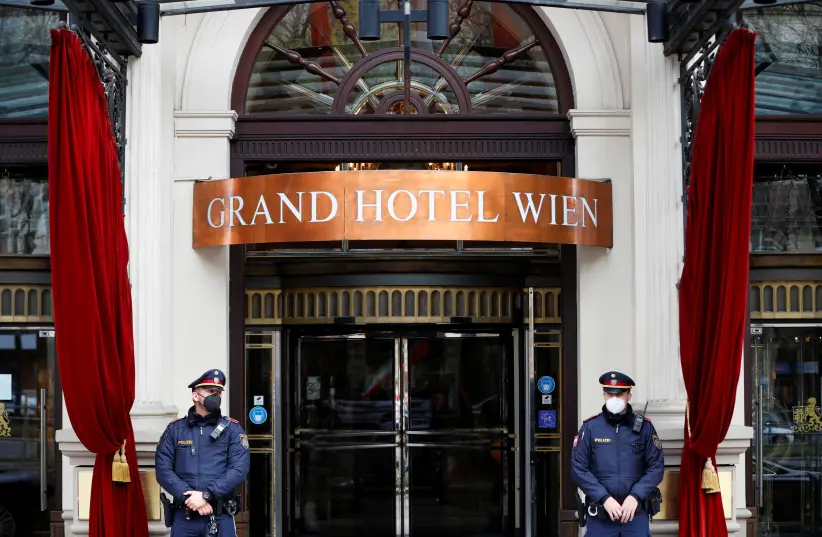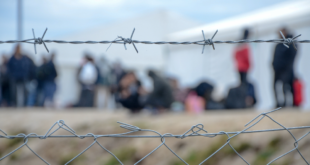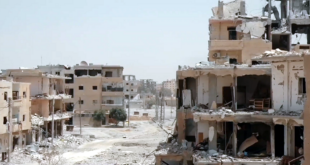“We condemn escalatory measures by any actor which could jeopardize progress.” Iran’s clerical establishment said it will not return to the 2015 agreement unless all sanctions are lifted.
The European parties to the Iran deal warned against taking non-diplomatic steps to stop the Islamic Republic’s nuclear program, in a statement released Wednesday.
“We encourage all sides to seize the diplomatic opportunity in front of us,” diplomats from Britain, Germany and France said. “We condemn escalatory measures by any actor which could jeopardize progress.”
The remarks came over a week after an explosion at Iran’s main uranium enrichment facility at Natanz, which Tehran blamed on Israel. Israel has not commented formally on the incident, but intelligence sources say the Mossad was behind the attack, which set Iran’s nuclear program back by months.
Mossad Chief Yossi Cohen, National Security Adviser Meir Ben-Shabbat and IDF Chief of Staff Lt.-Gen. Aviv Kohavi are set to meet with their American counterparts in Washington next week to make Israel’s case against returning to the 2015 Iran deal without significantly strengthening it.
The defense officials’ meetings will take place after two rounds of indirect negotiations between the US and Iran to go back to the Joint Comprehensive Plan of Action (JCPOA), as the nuclear deal is formally known.
“We don’t think it’s a done deal yet,” a senior official said. “We’re going there because we’re going to try to influence the process.”
Prime Minister Benjamin Netanyahu, Defense Minister Benny Gantz and Foreign Minister Gabi Ashkenazi plan to meet with the defense officials for an Iran policy meeting on Thursday.
The senior official remarked that the meetings in Washington will be the first face-to-face ones with top Biden administration officials, with the exception of US Secretary of Defense Lloyd Austin who visited Israel last week.
“Austin heard our concerns [about Iran] very directly, and now other people will hear those concerns. It’s important. You can have secure phones, but sometimes you have to stand in the same room,” the official said.
The E3, as the European parties to the Iran nuclear deal are known, said on Wednesday that negotiations in Vienna in recent weeks to bring Iran and the US back into compliance with the 2015 JCPOA have been productive, but are far from over.
“We welcome the constructive discussions that have taken place in Vienna, and the positive participation by all sides so far,” diplomats from the E3, told reporters. “We have made some progress, but there is still a way to go.”
Under the JCPOA Iran agreed to curb its uranium enrichment in return for relief from US and other sanctions. The deal’s critics point out that its restrictions on Iran’s nuclear activities expire in 2030, and that it does not address the Islamic Republic’s missile program or malign actions throughout the Middle East.
US President Joe Biden’s administration seeks to rejoin the JCPOA, and said it is ready to remove “all sanctions that are inconsistent” with the deal, without detailing which measures it means.
Iran’s clerical establishment has said it will not return to strict observance of the 2015 agreement unless all sanctions reimposed or added by former president Donald Trump after he abandoned the accord in 2018 are rescinded.
US State Department spokesman Ned Price said on Tuesday that the US will only make concessions once it is certain Iran will return to full compliance with the JCPOA. That would include reducing uranium enrichment from 60% to under 5% and disposing of or selling large numbers of centrifuges.
 Eurasia Press & News
Eurasia Press & News




